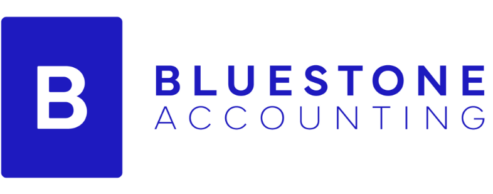Business Banking for Startups
You are well on your way to starting your own business. You have registered your business with the Revenue Commissioners for tax purposes. The next step is to open a bank account to receive payments from your new customers and make payments to your suppliers and for utility bills.
In the past, it would have been a natural course of action for new business owners to set up a business bank account with the same bank that they held their private current account with. This was because setting up a business account this way would be simple, straightforward, and take less time. So you would think.
In truth, selecting a business bank account has become more strategic than ever before, and some points of consideration need to be made before settling on a final decision. We are going to explore what options are available for new startup businesses and whether you should consider a traditional retail bank or a digital online bank. If your business is a startup, you will also be interested in exploring the startup packages available from Irish retail banks.
Here are the main points you should consider when selecting the correct business bank account.
Maintenance Fees
Account maintenance fees vary from bank to bank and therefore it is also worth shopping around for the best value. You want to inquire about their standard quarterly fee, which can range from €4.50 to €15.00 per quarter. For new startups, keeping maintenance fees to a minimum or zero in some cases will be essential and probably the deciding factor in who to open your business account with.
Tip: Most Irish retail banks offer Startup Packages for businesses that commenced trading within the last 2 – 3 years. These Startup Packages will include free fees for up to 2 years as well as additional supports to help your business scale up over time.
Online Banking / Mobile App
In a modern business climate, having access to your accounts online is essential to the smooth operation of your finances and finance function. Areas to consider are whether they have a mobile app, what reports of spending are available, whether there is a payment log available, if you can tag payments to classify expenses, whether there are daily transfer limits, if you are able to download transactions into a CSV file to import into your accounting software, and whether you get low-balance alerts.
Tip: Most Retail Banks in Ireland have 2 types of Online Internet Banking. They have the personal version and the business version. If you are a new startup business, select the personal version. It might have fewer features than the business version, but the personal version is free.
Limit and Access of Users
It is also worth noting if there is a limit to the number of users you can grant access to. This might include business partners, bookkeepers, and office administration staff. Another essential factor is the different levels of access users will have when they are logged into your bank account. To be flexible, the bank you select should allow different types of access, such as view only, or access should be customizable to allow certain users to set up supplier payments but not authorize these payments. Likewise, for setting up new supplier banking details online, one person will have access to set up the details, while a second person must authorize these details prior to any payments being processed.
Tip: As you scale up your business, make sure to have a segregation of duties within banking if you have delegated banking to an employee. Never have the same person setting up supplier payments and authorizing these payments.
Foreign Exchange Considerations
If your new business is likely to be dealing with either customers or suppliers or both in a different currency, then it is worth looking at the foreign currency options with the bank you select. Some banks are better than others, and all have their own level of fees. It is important to know what is important to you when choosing a bank for your foreign currency transactions. Do you want ease of use, like that offered by Revolut and WISE, or do you want to stay with traditional retail banking options? Be sure to check the fees that are linked to these types of accounts. For example, if you pay a Sterling supplier from your Euro bank account, then there will be additional fees.
Tip: With Revolut Business Banking, you automatically get multiple currency accounts. With this, you can easily move and exchange currencies from their app and make onward payments to your foreign currency suppliers.
Integration with your Cloud Accounting Software
While not a consideration in the past when deciding which bank to open a business bank account with, the ability to link your bank accounts to your cloud accounting software is becoming the critical factor in the decision-making process.
With the introduction of modern cloud accounting software systems tailored to Small and Medium Businesses, business owners are grasping the opportunity to automate their bank feeds. This means that each day your banking transactions are automatically uploaded from your online banking straight into your cloud accounting software, removing the time and administration required for manual inputs and reducing the risk of missing that customer payment you have been waiting on.
Make sure to ask if your new bank has the facility to connect with the cloud accounting software.
Tip: Talk to us at Bluestone Accounting about how we can advise on the latest cloud accounting software called QuickBooks Online to automate your banking but also your sales processes, track stock movements or project profitability, and manage your finances.
Overdraft and Funding
Another essential factor in selecting the correct bank account for your business startup is whether or not your new bank provides a business overdraft or other types of short-term working capital. Some digital online banks, such as N26 and Revolut, do not offer business overdrafts. So if you require some additional funding to support your startup, then it would be wiser to select one of the traditional retail banks.
Also worth considering is whether your bank will also provide different types of loans or funding such as Fixed Asset Leasing for the purchase of machinery and equipment. Other working capital options could include Discount Invoicing facilities.
Conclusion
Remember that the quarterly maintenance fee alone shouldn’t be a deciding factor and it should be the best combination of the above. Check out our blog post on comparing Business Bank Accounts available to Startups. If you are still unsure about what business bank account to select, we can assist you in making this decision as part of our own Business Startup package.


